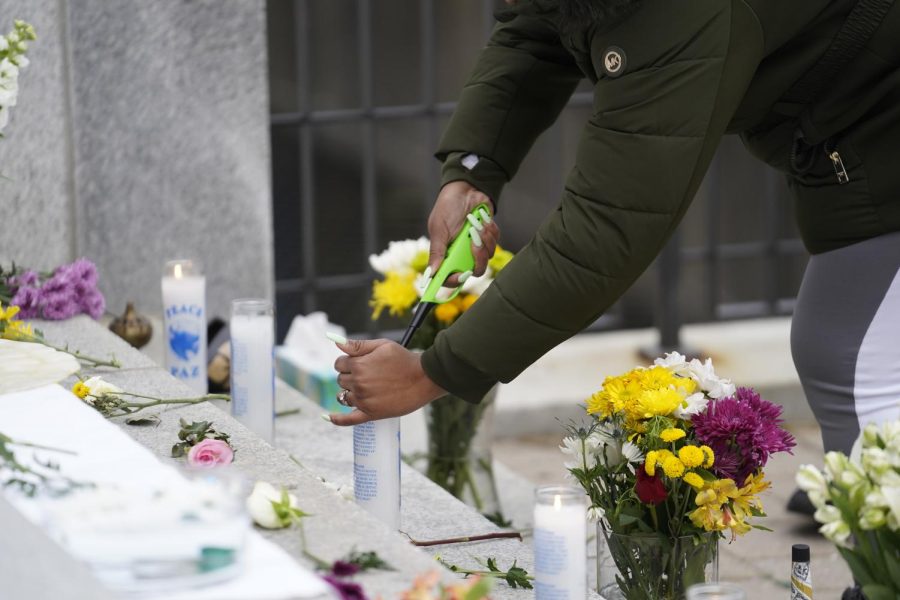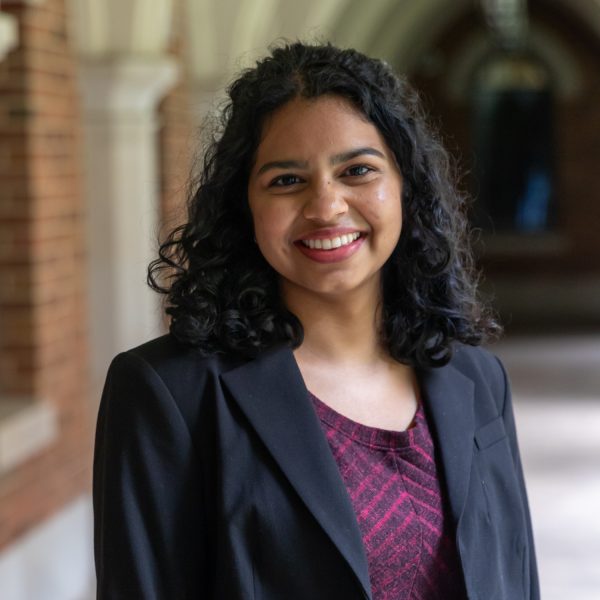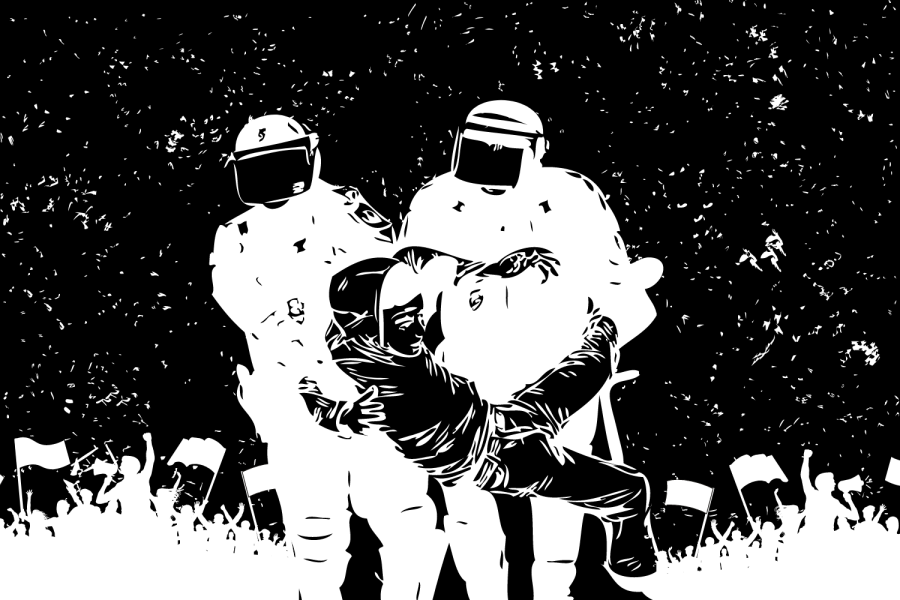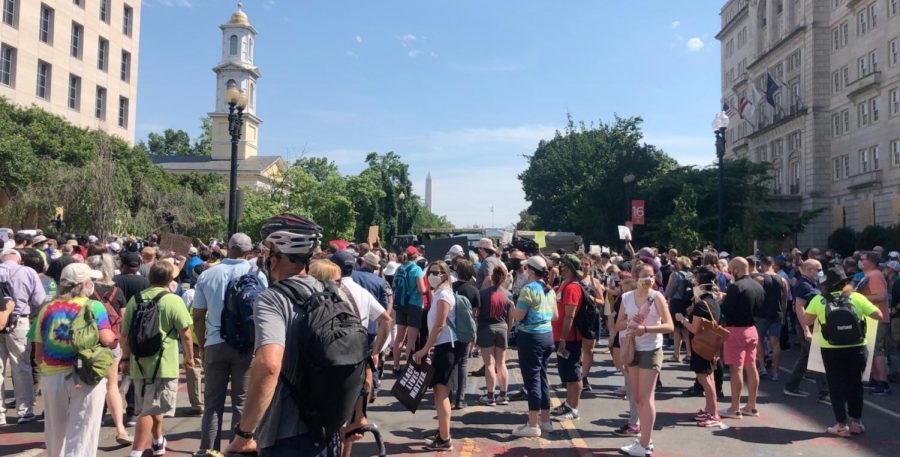CORRECTED: This article was corrected on Feb. 8, 2023, at 11:25 a.m. CST to remove an inaccurate quote from Simba Alik.
Members of the Nashville community — including Vanderbilt students and alumni — gathered at Public Square Park on Feb. 4 to hold a vigil for Tyre Nichols. On Jan. 7, Nichols was beaten by Memphis Police during a traffic stop and died on Jan. 10 from his injuries.
The vigil, organized by the Black Nashville Assembly, comes a week after five officers were charged with second-degree murder for their involvement in the case. The men, who were a part of the Memphis Police Department’s Scorpion Unit, were caught on body camera footage using excessive force, reigniting national conversation around police brutality and reform.
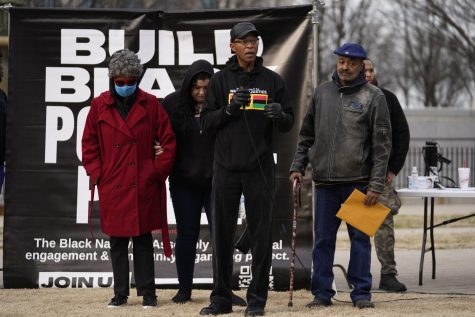
The event featured local activists and artists who emphasized the importance of community organization to address systemic policing issues in Tennessee. Those in attendance were invited to add flowers and candles to a memorial assembled on the steps of the Municipal Courthouse in remembrance of those impacted by police violence.
Community Oversight Office board member and speaker Maxine Spencer (‘18) highlighted local issues that have made it difficult to enact change in Nashville and across Tennessee. Spencer reminded attendees that, so far in 2023, at least two men have been killed by Metropolitan Nashville police officers.
“The core of the issue that we have here is policing, the violence that is inherent within it, and how we as a society allow that violence to continue,” Spencer said. “The Community Oversight Office, which is tasked with keeping police accountable, is underfunded and misused. The mayor, council members, and other parts of the Nashville political machine continuously attempt to weaken our efforts.”
Spencer, a Memphis native, said she began to notice rising surveillance and policing in the city when she returned home one summer during her time at Vanderbilt. She added that these measures, like the special unit involved in Nichols’ death, provide a false sense of security while harming Black communities.
“All it takes is for the wrong person to be at the wrong place at the wrong time,” Spencer said. “But we deserve better. I deserve better. Tyre deserves better. And the generations of black people that will come after us all deserve better.”
Simba Alik, a local writer and member of the Black Nashville Assembly, also recited an original poem reflecting on the experience of police brutality in the Black community.
“Somebody tried to kill me. Somebody tried to kill me and didn’t know I can’t die,” Alik said.
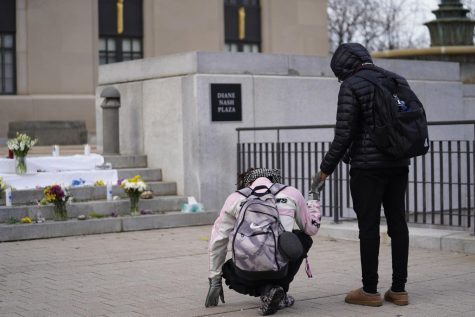
The vigil also addressed other instances of police violence that have occurred recently in Tennessee. In Mt. Juliet, Eric Allen was shot by police following a traffic stop on Nov. 2, dying on the scene. Terry Clayton, the attorney representing the Allen family, said that police violated protocol for use of force. The family is now calling for the officers involved to face charges.
On Jan. 23, Metro Police officers also shot and killed a man in North Nashville. According to audio of the 911 call released by the department, the caller described a man who was pointing a gun at people on the street, noting that he could have been suffering from a mental health episode. Video from Officer Dylan Ramos’ patrol car shows him shooting the man several times less than 20 seconds after he arrived on the scene. The 911 caller can be heard yelling “Don’t shoot him!” several times as multiple rounds are fired in the background.
“We have to put an end to over-policing of Black people and enact laws to prevent what happened to Eric Allen from ever happening again,” Clayton said. “The officer involved was rewarded—given paid administrative leave—and is now back on the job while a mother still grieves the death of her son.”
First-year graduate student and event attendee Daniel Wrocherinsky (‘22) said that the event demonstrated the importance of different organizations working together toward reform. He added that on-campus student activists need to be more intentional with respect to their demands from Vanderbilt.
“What has often happened throughout the history of Vanderbilt organizing is that you’ll have a strong movement towards something, VSG may pass a unanimous bill and the administration will take a half- or quarter-measure to placate students,” Wrocherinsky said. “We can’t allow them to do that to us anymore. We need to be serious with our demands and show the administration our commitment to making Vanderbilt and Nashville a better place.”
Wrocherinsky added that the creation of the Dores Worker Solidarity Network in Fall 2022 gave him more optimism for activism at Vanderbilt. According to Wrocherinsky, the DWSN is a coalition of student activists and multicultural organizations that aims to promote social advocacy on campus and in Tennessee.

Senior Laith Kayat said that the moments of solidarity that occur at vigils are important in bringing communities together around the issue of police brutality. Kayat added that Vanderbilt’s policy of political neutrality makes it difficult for the university to address systemic problems affecting communities on campus. Following the release of the body camera video from the Nichols case, the university released a statement providing support resources for students, which Kayat described as too brief.
“Vanderbilt needs to take a hardline stance against violence occurring in our communities across the world,” Kayat said. “I don’t think [police brutality] is a political issue. Life isn’t a political issue. The university needs to do more to empower students because we are the future.”

